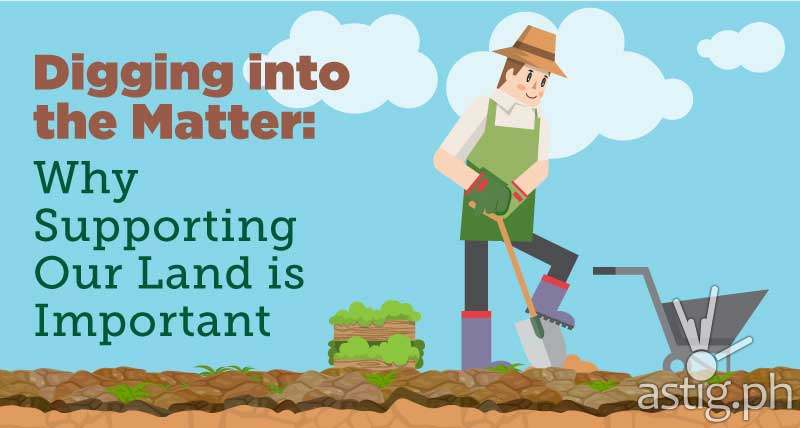PHILIPPINES – When it comes to growing our food, the soil beneath our feet plays an incredibly important role. The crops that our farmers deliver to our tables, such as rice and corn, depend on the nutrition and protection of a fertile soil so the plants can grow strong and healthy.
Growing food entails sustaining a healthy soil. But the earth has its limits. As a resource that takes more than a human being’s lifetime to replenish, soil is overly used to feed thousands of people from all over the world. By 2050, the human population is projected to rise to 9 billion, anticipating a 70% increase in food demand.
Meeting the expected demand requires 34,000,000 km2 of new farmlands, an area larger than the entire continent of Africa (FAO, 2014). However, in pursuit of producing more, farming is eating crucial habitats at a faster rate each year, with farmer often resorting to deforestation and forest burning.
As such, it’s crucial to find sustainable solutions to meet the skyrocketing demands without necessarily using harmful farming practices. And how do we grow food sustainably while ensuring that every mouth is fed properly? Simply by keeping soil healthy.
Agricultural companies such as Monsanto have invested on research to find best practices to keep our soil healthy. Because of efforts to push more viable ways to not just satisfy 7 billion people but also to help take care of our depleting resources, farmers are now aware of practices that protect and preserve biodiversity.
- Planting cover crops: Instead of leaving their fields bare, farmers are now planting cover crops after they have reaped their main crop to combat soil erosion.
- No-till farming: They have also limited their plowing to help the soil maintain organic matter for its benefit.
- Advanced irrigation: In addition, farmers also innovated by implementing drip irrigation that reduces water wasted from traditional irrigation from 35 to 50 percent to just 5 to 10 percent.
Recognizing the benefit of a healthy soil, agricultural companies such as Monsanto recently made a five-year funding and in-kind technical support commitment to the Soil Health Partnership, focusing on innovative soil management practices. Among others, the Partnership conducts Soil Health Field Day, which provides farmers with information about soil health and sound farm management practices through hands-on field demonstrations.
Through efforts that strike a healthy balance between proper and adequate nourishment of the population as well as protection and preservation of biodiversity, farmers are able to produce more yields while mitigating risks.
Click to enlarge the infographic below.



